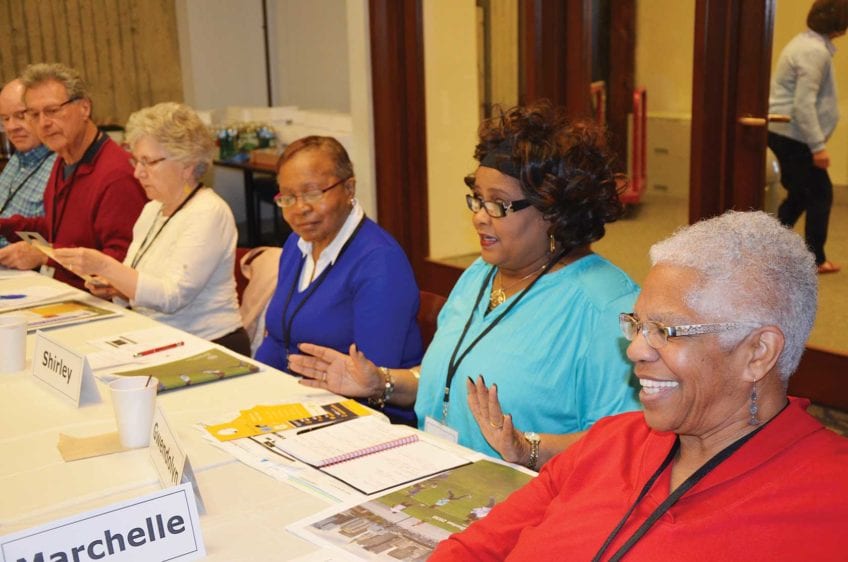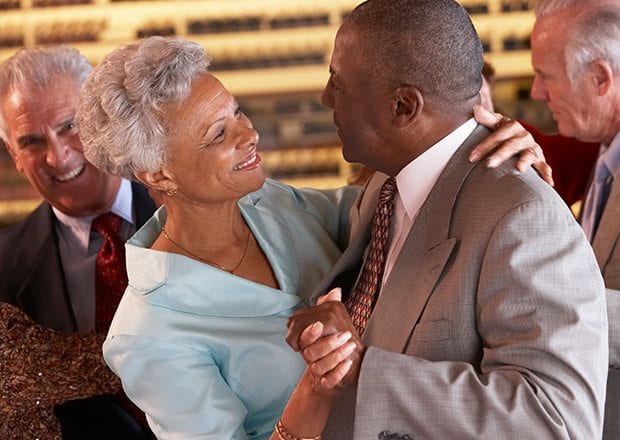

Monera B. Wong, M.D., M.P.H.
Associate Chief, Geriatric Medicine
Massachusetts General Hospital
By 2030 — just 16 years away — one-fifth of the U.S. population will be 65 years or older, says the U.S. Census Bureau. This group will look very different from the elders of today; they will be fitter and more ethnically and racially diverse.
Blame it on the baby boomers, the large group of post-war babies born between 1946 and 1964. Also to blame are vast improvements in public health and medical treatment that enable people to live well into their 80s and 90s. Some even top the century mark.
Though there’s no magic pill to slow the aging process, Dr. Monera Wong, associate chief of Geriatric Medicine at Massachusetts General Hospital, makes a good point. “You can’t slow down the process of aging,” she said, “but you can age better.”
There is a big difference in elders of long ago and today. “People are not only living longer, they are living well for longer,” she said. “Disability in the elderly is much less now.”
In 1900 the life expectancy in Massachusetts was 45 years according to Massachusetts Deaths 2010, a publication of the Massachusetts Department of Public Health. Those born in 2010 are expected to live until the age of 81, almost double the number of years.
Unfortunately, what often accompanies extended years is a hike in chronic disease. And it usually comes in pairs or more. As noted by the Centers for Disease Control and Prevention (CDC), two-thirds of older Americans have multiple chronic diseases.
Cataracts may cloud the vision and the hearing doesn’t work quite as well. Gray hairs are commonplace, bones lose density and muscles their strength and flexibility.
There are more troublesome changes as well. Kidneys lose efficiency in removing waste from the bloodstream. Some conditions common in African Americans, such as high blood pressure and diabetes, can damage kidneys even further. Medications can also be harmful.
Incontinence, or loss of control of the bladder, is fairly common. Older men often experience an enlarged prostate, which makes emptying the bladder difficult. Postmenopausal women can experience stress incontinence as the muscles controlling the bladder weaken.
Harder hit is the cardiovascular system — the heart and connecting blood vessels. An older heart becomes a less efficient pump, and the arteries, which carry oxygen-rich blood from the heart to the muscles and organs, become narrow and inelastic, leading to high blood pressure. According to the National Heart, Lung, and Blood Institute, there is a 90 percent chance of developing high blood pressure after the age of 55.
High blood pressure can lead to stroke, heart failure, heart attack and kidney failure — all common in the elderly and blacks as well.
Of principal concern are the brain and nervous system. Memory gets a bit fuzzier; reflexes a little slower. A major fear is Alzheimer’s disease, a chronic, debilitating condition that robs the elderly of not only their memory, but the ability to reason and understand.
The picture may look bleak, but actually, many elders are faring quite well. The State of Aging and Health in America 2013, published by the CDC, has developed report cards on health indicators in four areas: health status, health behavior, preventive care and screening and injuries. The scores range from one to four, one being the best.
The less favorable scores for the Commonwealth were for vegetable consumption, obesity and injuries. Only 29 percent of elders said they ate veggies three or more times a day in comparison to 40 percent in Tennessee. Almost 23 percent are obese and more than one-third sustained an injury from a fall within the past year. In Hawaii, 16 percent of senior citizens are tipping the scale and less than one-fourth of older citizens sustained injuries from a fall in Wisconsin.

On the other hand, Massachusetts was one of the leading states in oral health, fruit consumption, disability days and vaccines and screenings. Most of the elderly in the state had retained most of their teeth, a key factor in good nutrition. Only one-third indicated that they were limited in any way because of physical, mental or emotional problems. Massachusetts had some of the highest rates for flu and pneumonia vaccines and colorectal screening.
It surpassed all states in the percent of women 65 and older who had received mammograms within the past two years. Almost 90 percent had been screened for breast cancer, considerably higher than 72 percent of the women in Alaska.
The good news is that poor health is not an inevitable consequence of aging. Wong explained that often seniors do well physically, until they hit 75 or 80 when an accumulation of medical conditions surface. Yet, it is possible to delay or prevent many illnesses.
A healthy lifestyle can keep many of the changes at bay. Even better news is that it’s never too late to adopt the triad for healthy living — smoking cessation, healthy eating and weight control and exercise.
=“Not smoking is extremely important,” she said. “And if you do smoke, it’s never too late to quit.” The risk of heart disease drops significantly after smokers break the habit.
Eating a variety of fruits, vegetables and whole grains can improve nutrition. Choosing foods low in trans and saturated fats, sugar and salt can minimize the dangers of cardiovascular disease and obesity.
All adults regardless of age are recommended to get at least 150 minutes a week of moderate-intensity exercise, such as brisk walking and muscle strengthening activities, such as t’ai chi, on two or more days a week.
According to recent studies, exercise not only helps the heart, muscles and bones by increasing blood flow throughout the body, it has also been found to keep the mind sharp and improve memory.
A nip now and then is fine, but health experts recommend no more than two drinks a day for men and one a day for women.
Staying mentally active and socially engaged is key.
Wong bristles at the misperceptions often repeated about older adults. Memory loss is not a normal part of aging and not everyone gets dementia, she explained. And you don’t have to shout; not all senior citizens have hearing loss. Not all older people are dependent for care. Some go through their lives entirely independent of others, she said.
Another common belief is that elders are not computer savvy, but a report on Internet use and the elderly by the Pew Research Center put that myth to bed. The study found that half of adults 65 and older use the Internet or e-mail. Moreover, 70 percent have cell phones.
Not only are seniors surfing the web, one-third are “liking” on Facebook or “following” on twitter or some other social networking site. Eighteen percent do so almost daily.
Wong said she marvels at the resilience of her elderly patients. “I’m amazed at the tragedies they have survived and how whole they remain,” she said. “I don’t know if I could do it.”







